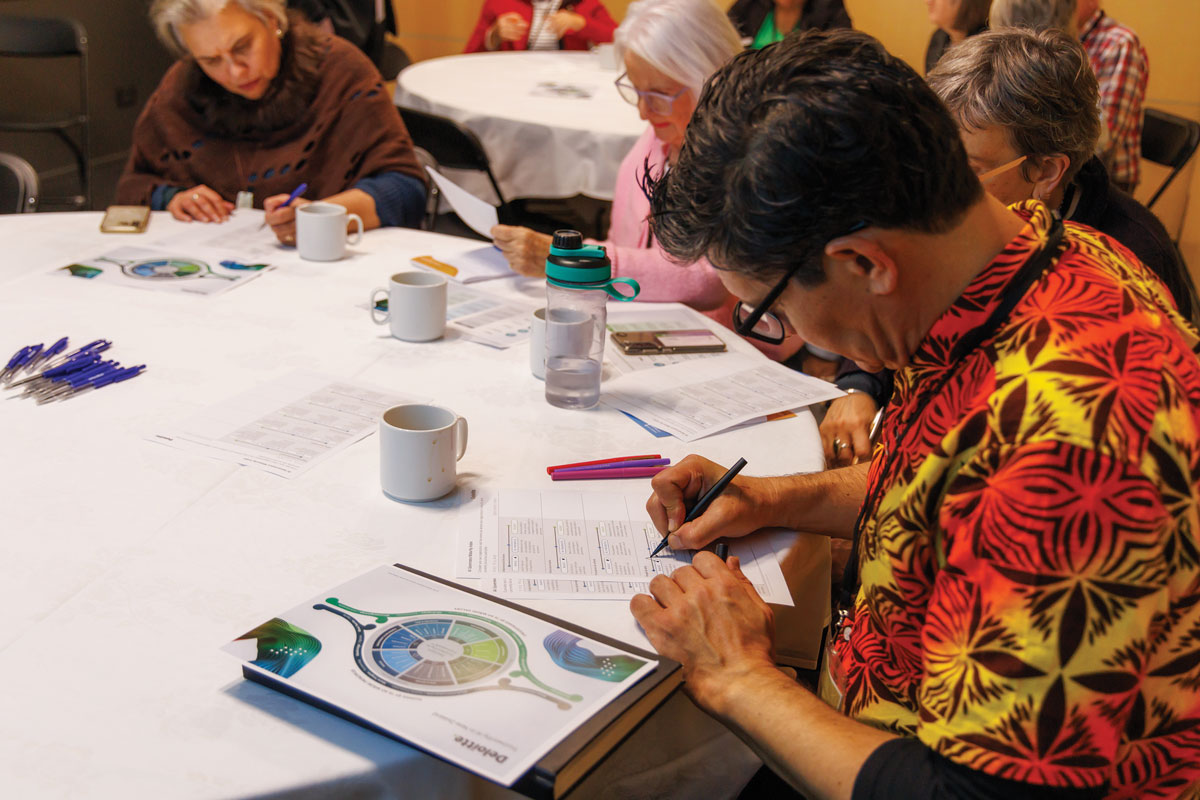
Chelsea Natana, Catherine Davidson, Rhys Harris: Deloitte
At the AI in Governance workshop, Chelsea Natana, Catherine Davidson and Rhys Harris from Deloitte shared practical tools and insights to help organisations use AI in a responsible and meaningful way. The session was designed for those in a governance role, and the focus was on understanding the risks and benefits of AI, understanding Te Ao Māori considerations, application of trustworthy AI, and an activity session focused on the AI maturity index. As Catherine said at the start of the workshop, “We will not get the benefits AI promises if we don't trust it.”
The team stressed the need for clarity and leadership on the use of AI from senior roles within an organisation. The need for clear alignment on the use of Ai with the overall organisational strategy and the requirement to bring everyone on the team on the journey with you, including how and why it will be used. If people within an organisation don’t understand these key initial steps, it will be hard to implement.
Based on significant global research, Deloitte has developed a model for trustworthy AI use in New Zealand. The core of Deloitte’s Trustworthy AI framework is based on global findings and includes seven core components:
- Privacy
- Transparency and explainable
- Fair and impartial
- Responsible
- Accountable
- Robust and reliable
- Safe and secure
The model also includes guidance that has been tailored for a New Zealand context and framed around Te Ao Māori principles. These principles include Mana Motuhake, Whakamarumartia, Mana Tangata, Kōwhiringa and Mana Taurite. Each of the principles is underpinned by Te Ao Māori values, including Kotahitanga, Manaakitanga, Kaitiakitanga, Rangatiratanga, Whakapapa and Whanaungatanga.
Trustworthy AI requires each organisation to develop the five pillars of AI governance maturity, including:
- Policy and principles
- Procedures and controls
- People and skills
- Organisational structure and
- Monitoring, reporting and evaluation.
Workshop participants were given time to explore a reality check for their organisation based on the principles, with the development of takeaway actions.
